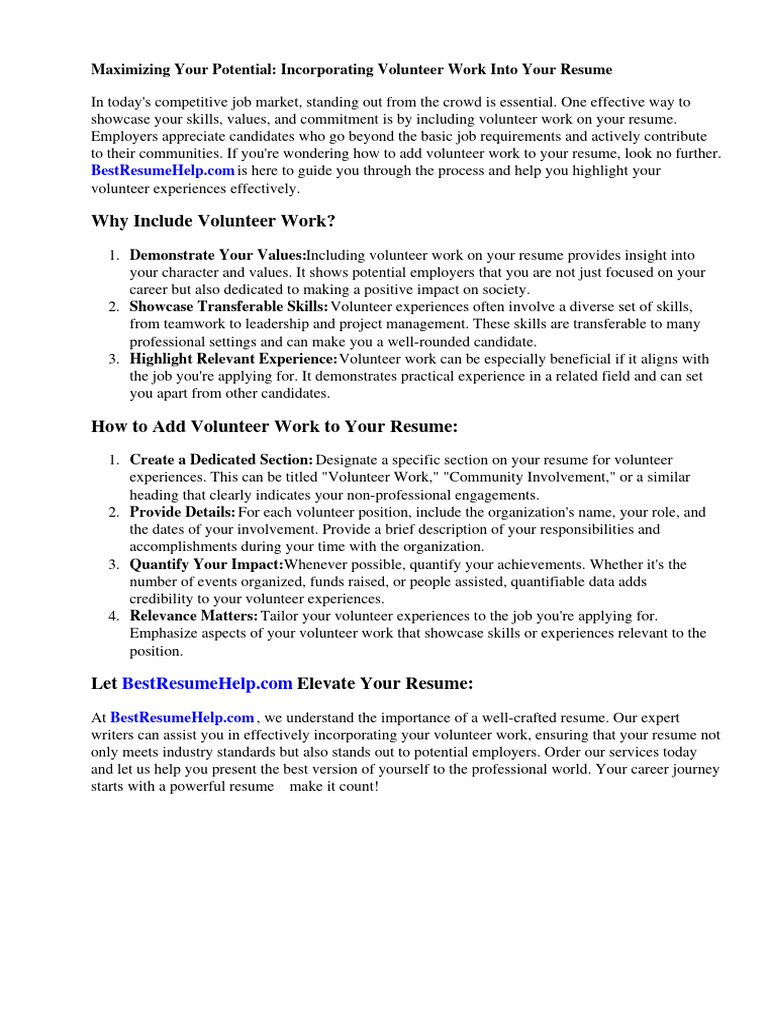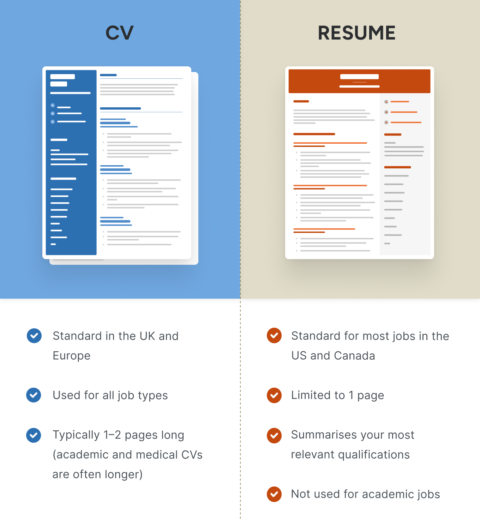In today’s competitive job market, how one presents their experience can significantly influence hiring managers’ perceptions during the recruitment process. Including volunteer work on your resume can be a transformative tactic, demonstrating not only your skills but also your commitment to the community and your willingness to go above and beyond what is expected. This article aims to provide comprehensive guidance on effectively incorporating volunteer experiences into your resume to impress potential employers.
Firstly, it is imperative to understand the profound impact that volunteer experiences can have on your resume. Employers increasingly value applicants who display a well-rounded character, social responsibility, and the soft skills acquired through such activities. Skills such as teamwork, communication, problem-solving, and leadership regularly gleaned from volunteer work can indeed parallel professional experiences, making them highly relevant.
So, how can you elegantly weave your volunteer work into your resume? Start by identifying the most pertinent experiences. You should curate your selection based on the job you are applying for. For instance, if you are seeking a role in marketing, emphasizing volunteer projects where you organized events or managed social media platforms would be strategic. Meanwhile, if you are aiming for a position in education, focusing on tutoring or mentoring experiences may serve better.
Next, ensure that you articulate your volunteer experiences using precise, action-oriented language. Enumerating your roles and responsibilities in a manner akin to that of professional work is essential. For example, instead of saying, “Helped at the local shelter,” refine it to “Coordinated food drives and managed volunteer shifts at the local shelter, enhancing operational efficiency and volunteer engagement.” Such nuanced descriptions elucidate your impact and the skills acquired.
Furthermore, consider the appropriate format for showcasing your volunteer work. There are several places within your resume where this can be effectively exhibited:
- Separate Section: Create a distinct section titled “Volunteer Experience” or “Community Involvement.” This is particularly advantageous for those with extensive volunteer history or when volunteer roles are highly relevant to the desired position.
- Integrated Within Professional Experience: If your volunteer roles align closely with your professional experience, intermingling them can illustrate a consistent narrative of growth and contribution in your career path.
- Relevant Projects: When undertaking a project-based resume, consider listing significant volunteer projects under a “Projects” section. This can be particularly useful for creative fields or sectors where tangible outputs are pertinent.
Once you have established the location and format, focus on the quantifiable achievements derived from your volunteer work. To succinctly demonstrate the scope of your contributions, include statistics or outcomes where applicable. Phrases such as “Increased community participation by 30% through targeted outreach initiatives” not only highlight your achievements but also convey a strong sense of initiative and efficacy.
Another critical aspect to consider is tailoring your language to align with the desired position. Scrutinize the job description and incorporate relevant keywords into your volunteer experience section. Such strategic tweaking can enhance the likelihood of passing Applicant Tracking Systems (ATS) and resonate more with hiring managers, showcasing your attentiveness to the role’s requirements.
In addition, always keep in mind the importance of honesty in your resume. While embellishing your experiences can be tempting, inaccuracies have the potential to unravel during the interview process. Authenticity breeds credibility—a trait valued by employers. Highlight the sincere impact you made, as well as the valuable lessons learned through your volunteer work.
Moreover, don’t underestimate the power of references from your volunteer engagements. If possible, include contact information for supervisors or coordinators who can vouch for your contributions. This additional layer of credibility can provide express validation to prospective employers and reinforce your demonstrated skills and commitment.
Lastly, consider crafting a cover letter that reiterates your volunteer experiences in context with the position you’re applying for. Use this opportunity to elaborate on how these experiences have shaped your professional aspirations. Discussing your volunteer work in a narrative form can evoke a sense of personality and depth, making you a memorable candidate. Including anecdotes about the challenges faced and overcome during your volunteer work can also contribute to a more profound narrative, illustrating your character beyond a mere list of skills.
In conclusion, including volunteer work on your resume is not merely a supplementary addition; it is a strategic avenue to distinguish yourself from other candidates. By thoughtfully articulating your experiences, emphasizing achievements, and aligning with role-specific competencies, you showcase an applicant profile that is rich in community engagement and personal development. As you advance through your career, remember that the skills gleaned from volunteering are often just as critical as those procured in traditional employment. Embrace these experiences, for they are a testament to your character, dedication, and the diverse skill set you bring to the table.




